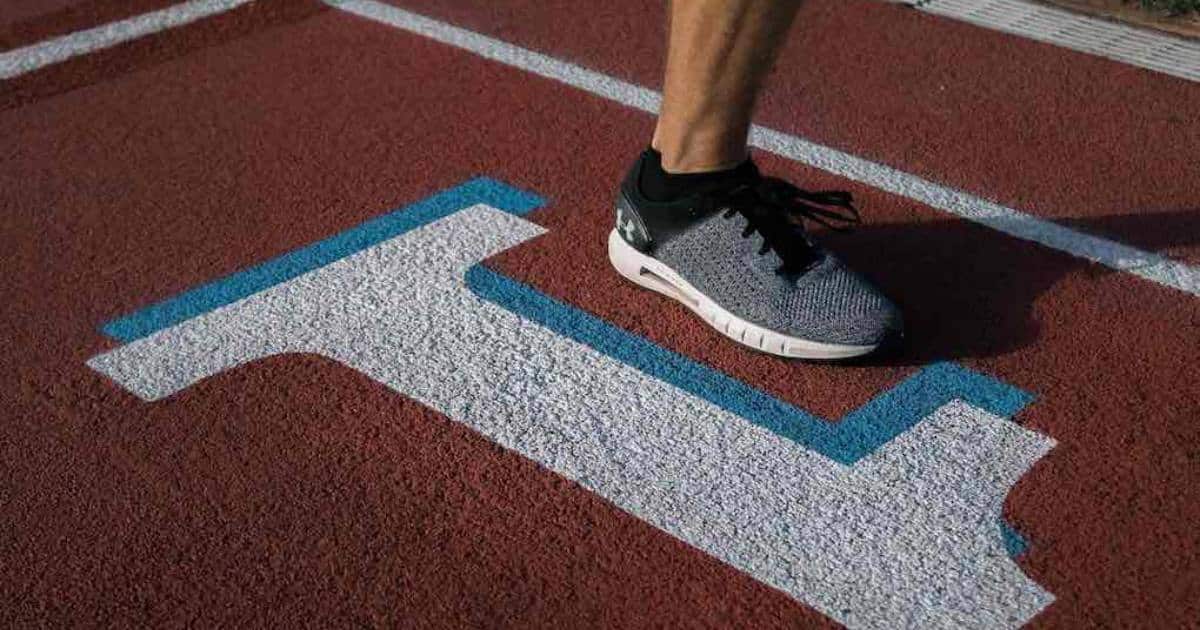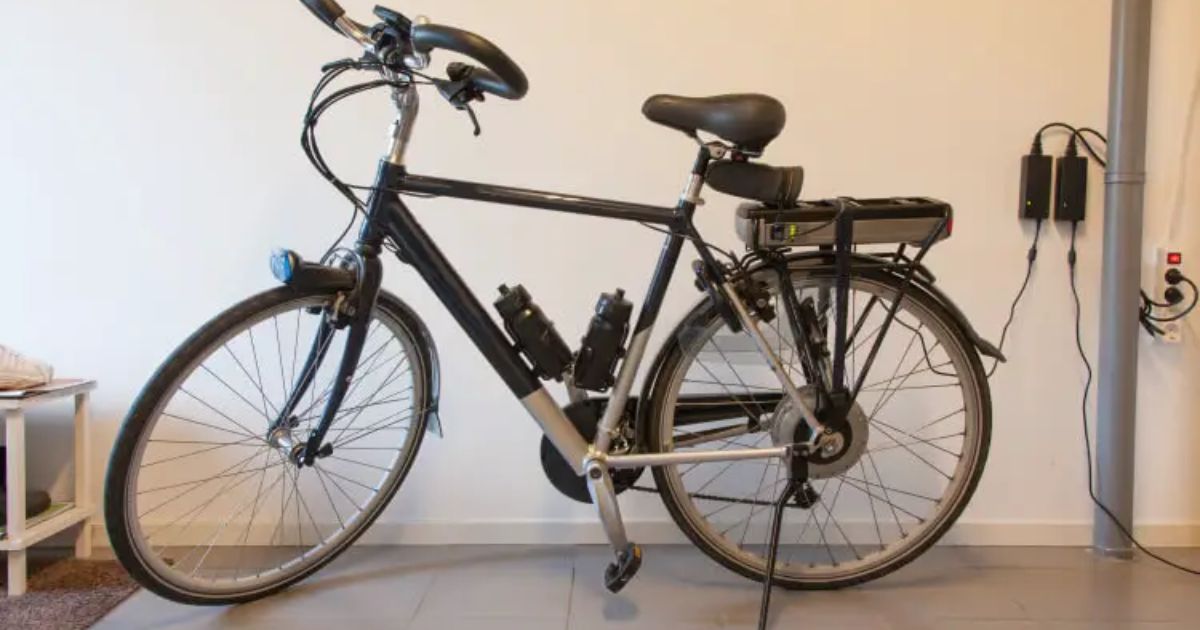Jogging a mile is a common goal for many people, whether they’re regular runners or just doing it for fun. The time it takes to run a mile depends on things like how old you are, if you’re a man or a woman, and how fit you are. Knowing these average times can help you set achievable goals and see how you’re improving.
On average, a good time to run a mile is around 7 minutes and 4 seconds for everyone. The fastest time ever recorded is 3 minutes and 47 seconds. Men usually run a bit faster, with an average time of 6 minutes and 37 seconds.
Remember, these are general averages, and your time might be different based on your age, body type, and how much you’ve run before.
Average 1 Mile Run Time By Age
To understand how fast people typically run one mile, we can check the times based on their age and gender. This part will tell us the average running times for men and women, showing how age and gender might affect how fast someone can run.
Men
Men usually take around 6 to 10 minutes to run one mile on average. The time can be different for each person and depends on their age, how fit they are, and how much experience they have in running. Here’s a chart that shows the average mile times for men based on their age:
- Ages 20-29: Around 6 minutes and 37 seconds
- Ages 30-39: Around 7 minutes and 4 seconds
- Ages 40-49: Around 7 minutes and 39 seconds
- Ages 50-59: Around 8 minutes and 24 seconds
- Ages 60 and older: Around 9 minutes or more
Women
Just like men, women’s average mile run times can be different based on their age and other factors. Here’s a chart that shows the average mile times for women in different age groups:
Age 20-29: 7 minutes and 51 seconds
Age 30-39: 8 minutes and 11 seconds
Age 40-49: 8 minutes and 41 seconds
Age 50-59: 9 minutes and 36 seconds
Age 60 and above: 10 minutes or more
As mentioned earlier, a good overall one-mile run time for everyone is considered to be 7 minutes and 4 seconds. Remember, these are just average times, and individual results may be different. Other things like how fit you are, your training, and your overall health also affect how fast you can run a mile.
Also, read about: Skylar Blue Net Worth, Age, Height, Weight, Relationship, Biography On Wikipedia, And Family
Running Performance Factors
Many things affect how well someone runs a mile. Things like genes, muscles, how efficiently you run, how long you can keep going, and how much you’ve practiced all play a part. Knowing about these things can help people get better at running and be more fit overall.
Genetics
Your genes play a big role in how good you are at running. Some people are born with more fast-twitch muscles, making them great at short runs like one mile.
Others with lots of slow-twitch muscles do better in long-distance running. Even though you can’t change your genes, knowing them can help you plan your training to match what you’re naturally good at.
Muscle Mass
Having strong muscles, especially in your legs and core, can really help you run better. It makes you more efficient, powerful, and gives you better stamina.
If you have more muscle, you can run faster and keep up a quicker pace for a longer time. But be careful, having too much muscle might make you use more energy, so it’s important for runners to find the right balance between being strong and having good endurance.
Running Economy
Running economy is about how well you use oxygen and energy when you run. If you have good running economy, you use less energy by making your stride, breathing, and overall technique as efficient as possible.
To improve your running economy, focus on keeping the right form, strengthening your core, and becoming more flexible through stretching and mobility exercises.
Endurance
Endurance means how long your body can keep going when you run for a long time. It’s really important for getting faster at running one mile, especially as you get more experienced.
You can make your endurance better by doing regular exercises that get your heart pumping, like running for a long distance, swimming, or cycling.
Also, doing different types of exercises can make your endurance stronger and lower the chance of getting hurt from doing the same thing too much.
Training Level
- Runner’s training level affects how well they run a mile.
- People can be beginners (new to running), novices (some experience), intermediates (consistent training, fitness goals achieved), or advanced (many years, race accomplishments).
- Going through these levels usually makes runners better at the 1-mile run.
- Improvement comes from increased endurance, strength, and better running skills.
Mile Time Across Distances
When looking at how fast people run on average, it’s important to think about different race lengths like 5K, 10K, half marathons, and marathons.
Each of these races has its own typical speeds, and they can change based on things like age, gender, and how athletic someone is. Let’s take a closer look at each race length and see what the usual mile times are for them.
5K Mile Time
A 5K race is like running 3.1 miles and is liked by both casual and serious runners. People who run for fun or are in decent shape usually finish a mile in about 9 to 10 minutes.
So, the average time for a 5K race would be around 27 to 31 minutes. If you’re new to running, it might take a bit longer, like 12 to 15 minutes per mile, making the total 5K time about 37 to 47 minutes.
10K Mile Time
In a 10K race, which is about 6.2 miles long, people usually run a bit slower per mile compared to a 5K because it’s a longer distance.
Even though there isn’t a lot of data on how fast people run each mile, a rough guess for an average runner would be around 10 to 12 minutes for each mile. This means it would take them about 62 to 75 minutes to finish the whole 10K race.
Half Marathon Mile Time
A half marathon is 13.1 miles long. As you run more, your speed usually decreases. But lots of runners try to keep the same speed during the whole race.
If you’re an average runner, you might finish a mile in 12 to 15 minutes. So, your total time for a half marathon could be around 2 hours and 37 minutes to 3 hours and 17 minutes.
Marathon Mile Time
The marathon is a tough race that covers 26.2 miles. Even for experienced runners, it’s a challenge. According to Medical News Today, Eliud Kipchoge holds the world record for the fastest marathon, with an incredible average pace of 4:34 per mile. But for regular runners, that pace is not realistic.
A more doable average time for each mile could be between 14 to 16 minutes. This would mean finishing the entire marathon in about 6 to 7 hours. Keep in mind that these average times are just general estimates and can vary based on factors like age, gender, and how athletic someone is.
Comparing Mile Times
In this part, we’ll look at how fast different groups of runners can run a mile on average. This includes really good runners and the fastest mile time ever recorded.
Elite Runners
Fast runners are really quick at running one mile. Regular guys usually take about 6 minutes and 37 seconds, while regular girls take around 9 to 10 minutes. On the other hand, super fast guys can run a mile in less than 4 minutes, and really fast girls can do it in around 4 minutes and 20 to 40 seconds.
World Record Mile Time
The quickest time anyone has run a mile is an amazing 3 minutes and 47 seconds. A really fast guy did this!
This record shows how great humans can be at running, thanks to the runner’s talent and hard training. Other things that can affect how fast someone runs a mile are how old they are, how fit they are, the shoes they wear, and how high above sea level they are.
Eating well and having a good exercise routine can help people get better at running miles, whether they’re competing or just doing it for fun.
To understand how fast these mile times are, here are some simple guidelines:
- Typical time for guys to run a mile: 6 minutes and 37 seconds.
- Typical time for girls to run a mile: 9 to 10 minutes.
- Really fast guys can run a mile in less than 4 minutes.
- Really fast girls can run a mile in 4 minutes and 20 to 4 minutes and 40 seconds.
- The fastest mile ever run is 3 minutes and 47 seconds.
Remember, people run at different speeds because of many reasons. It’s not helpful to compare your running with the fastest athletes or world records. The best way to get better at running is to train regularly, set achievable goals, and stay positive.
Running Workouts To Improve Mile Time
Interval Training
Doing interval training is a great way to get better at running faster and going longer distances. It means running really fast for a short time, then slowing down or resting for a bit. This workout helps your heart and body get stronger, making you run faster.
Here’s an easy way to do it: run as fast as you can for 1 minute, then jog or walk slowly for 2 minutes. Repeat this for 20-30 minutes. As you get fitter, you can make it harder by taking shorter breaks or running faster during the fast parts.
Hill Workouts
Running faster miles is possible by adding hill workouts to your training. Going up hills builds leg power, strength, and endurance, making you faster on flat ground. A basic hill workout includes running up a medium hill as hard as you can for 30-60 seconds, then taking it easy by jogging or walking back down to recover. You can repeat this for a few sets, adjusting based on how fit you are.
Strength Training
Adding strength training to your running routine can make you better at running and help you run faster miles. When you do exercises that make your muscles and connections stronger, you can run more efficiently and lower the risk of getting hurt.
Some good exercises to include in your strength training plan for running are squats, lunges, deadlifts, and calf raises. Make sure to do them with the right form and increase the difficulty slowly to stay safe and avoid working too hard.
Personalized Training Program
Every runner is different, with their own fitness level and background. So, it’s important to create a training plan that fits them well for the best outcomes. The personalized program might differ in how long, how often, and how hard the workouts are. It also includes a mix of interval training, hill workouts, and strength training. Seeking help from a running coach or using a specific training plan can help runners make a program that works best for them and helps them get faster at running a mile.
Fitness Evaluation Metrics
Measuring how well someone runs and how fit they are can involve different things. This part looks at some important factors, like fitness tests and checking how much power they use.
Fitness Test
The 1 mile run test is a popular way to check how fit someone is. It works by seeing how long it takes to run one mile. People who are in decent shape but not competing usually finish in 9 to 10 minutes. If you’re new to running, it might take you around 12 to 15 minutes.
Different things affect how fast you can run a mile, like your age, gender, how fit you are, and what you eat. For instance, the average time for women of all ages to run a mile is 7 minutes and 44 seconds. The fastest time ever recorded is 4 minutes and 13 seconds.
Power
Strength is really important for how well you run. It means being able to push really hard and fast, making you speed up and perform better. If you’re strong, you can reach high speeds quickly and keep them up during your run.
To get stronger for running, you can do certain exercises like running up hills, doing resistance training, and doing explosive drills. These activities build up strength and power in your legs, making your overall running performance better.
If you understand and improve your fitness level by using tests and measuring your power, it can really help you run better.

I’m passionate electric scooter enthusiast and the voice behind this blog. I’m here to share my expertise and insights with you. From in-depth reviews to problem-solving guides, my goal is to help you make the most of your electric scooter experience.










![Gomyfinance.com Invest: I Made $5,000 in My First Month [Real Results 2025]](https://electopolo.com/wp-content/uploads/2025/05/Gomyfinance.com-Invest-I-Made-5000-in-My-First-Month-Real-Results-2025-150x150.jpg)


